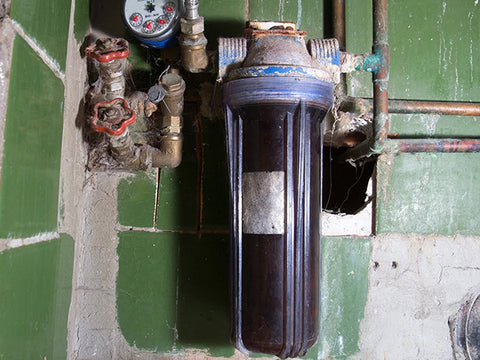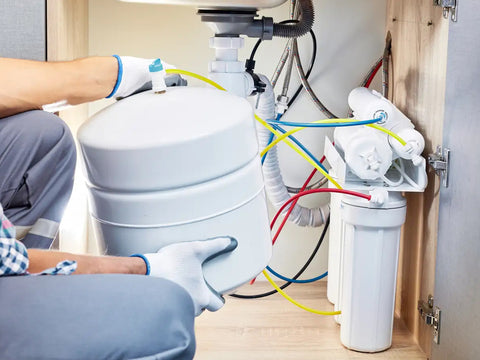Impact of Hard Water on the Efficiency of Water and Treatment Systems
Hard water is often a major problem in water and wastewater treatment systems, affecting efficiency and increasing operational costs. Knowledge of how hard water affects water treatment systems is important to maintain system performance at optimal levels. The high mineral content in hard water, such as calcium and magnesium, not only poses challenges in equipment maintenance but also has an effect on the quality of water produced.
Understanding the implications of hard water and how to deal with it can be key to ensuring the smooth operation and sustainability of water and wastewater treatment systems. By identifying and implementing effective handling strategies, we can reduce the risk of equipment damage, extend service life, and ensure that treated water meets expected quality standards. This is important not only for operational efficiency but also for compliance with environmental regulations and commitment to the preservation of water resources.

What is hard water?
Hard water is water that contains high concentrations of minerals, especially calcium and magnesium. This water can come from wells or groundwater sources that naturally have these minerals. The nature of hard water is not only determined by the presence of calcium and magnesium but also by the content of other minerals such as iron and manganese which can affect the quality of the water as well as its use for both domestic and industrial purposes. In addition, hard water can also affect the efficiency of soap and detergent use, as it requires more products to achieve the same level of cleanliness compared to using soft water.
In the context of water treatment systems, hard water can also affect the efficiency of soap and detergent use.
In the context of water treatment systems, the introduction of purification technologies and equipment that can reduce the levels of these minerals is important to improve water quality and optimize overall system performance. Therefore, an in-depth understanding of the nature and impact of hard water is a crucial first step in designing and implementing effective water treatment strategies."
Read also:
Understanding Hard Water: Definition, Types, and Uses
Understanding Hard Water.
Hard Water Impact on Water Treatment Systems
Hard water can cause scale formation on pipes and equipment, increase energy consumption, and reduce the effectiveness of detergents. This not only increases operational costs but also shortens equipment life. In addition, hard water can also affect the overall water treatment process, compromising treatment efficiency and the resulting water quality. For example, excessive scale formation can inhibit heat exchange in the water heating system, causing the equipment to work harder and consume more energy. Scale formed on heating elements can decrease heating efficiency by up to 30%, which significantly increases energy expenditure and operational costs.
In addition, hard water can also cause problems in the flocculation and sedimentation process of wastewater treatment, where the efficiency of particle settling is compromised, affecting the quality of treated water. This means that more chemicals may be required to achieve the same water quality standards, adding to treatment costs. Thus, identifying and addressing hard water issues is not only important for maintaining equipment but also essential for maintaining the efficiency of the water treatment process, optimizing energy consumption, and minimizing environmental impact.
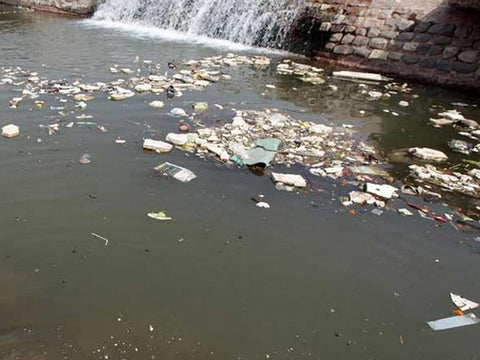
Hard Water Impact on Liquid Waste Treatment
In wastewater treatment, hard water can complicate the treatment process, affect the quality of water released into the environment, and potentially harm public health. Hard water with its high mineral content can interfere with the effectiveness of various chemical and biological processes used in sewage treatment. This includes settling, coagulation, and microbial activity essential for the treatment of organic wastes.
In addition, mineral residues left behind from hard water can cause accumulation on treatment equipment, which not only requires more frequent maintenance and cleaning but can also decrease overall sewage treatment capacity. This, in turn, can increase operating costs and require more investment on equipment maintenance and replacement.
Furthermore, suboptimal wastewater quality due to hard water influences can negatively impact local ecosystems if discharged without adequate treatment, affecting aquatic life and the quality of water sources for humans and fauna. Thus, understanding and managing the impact of hard water on wastewater treatment is crucial for efficient and environmentally responsible operations.
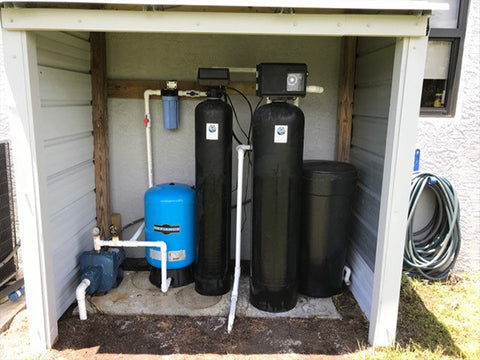
Solutions to Overcoming Hard Water
Solutions to hard water problems include the use of water purification equipment that can reduce mineral content. It is also important to conduct regular maintenance and monitoring to ensure the efficiency of water and wastewater treatment systems. Water softening technologies, such as ion exchange systems that replace calcium and magnesium ions with ions that do not form scale, such as sodium or potassium, are effective ways to solve this problem.
In addition, oxytetracycline technologies are also available. In addition, reverse osmosis technology can be used to remove minerals and other contaminants from water, resulting in purer and safer water for a variety of applications.
User education on ways to reduce the use of hard water in everyday life is also important, including optimal water heater temperature settings to reduce scale formation and the use of detergents designed for hard water.
Implementation of these solutions is not limited to hard water.
The implementation of these solutions can not only improve the efficiency and longevity of equipment and infrastructure but also ensure better water quality for domestic and industrial needs. With a comprehensive approach, including appropriate technology selection and systematic management, the negative impact of hard water can be minimized, supporting environmental sustainability and economic effectiveness.
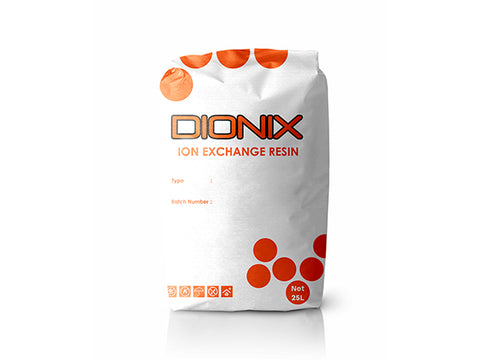
Watermart's Role in Addressing Hard Water
Watermart offers a range of solutions to hard water problems, helping to keep water and wastewater treatment systems operating efficiently. We encourage you to consult with us for your water treatment needs. As a distributor of water treatment equipment in Indonesia, we focus on providing quality products that can help reduce excess mineral content in water, including water filters and purification media designed to handle hard water. Among the purification media we offer include rion exchange machines, cationic resins, and other specialized systems and media that are effective in reducing water hardness, improving general water quality, and addressing scale formation issues. Our products are selected for their effectiveness in reducing the negative impacts of hard water, such as reducing scale formation and improving water quality for everyday use and commercial applications.
We understand the importance of access to hard water.
We understand the importance of access to clean and healthy water, as well as the challenges faced by households and industries in managing hard water. Therefore, we offer solutions that are not only effective in addressing hard water issues but are also environmentally friendly. With an approach that focuses on sustainability and efficiency, Watermart is committed to helping customers face hard water challenges in the most effective and efficient way.
Through cooperation with Watermart, customers can gain access to a wide range of products and services designed to meet their specific hard water needs. We provide quality technical support and customer service to ensure that every solution we offer can be implemented successfully. Contact us today via Whatsapp and e-mail to get more information on how we can assist you in addressing hard water issues with appropriate and sustainable solutions.

.png?width=50&height=50&name=Logo_Watermart_Perkasa-removebg-preview%20(1).png)
